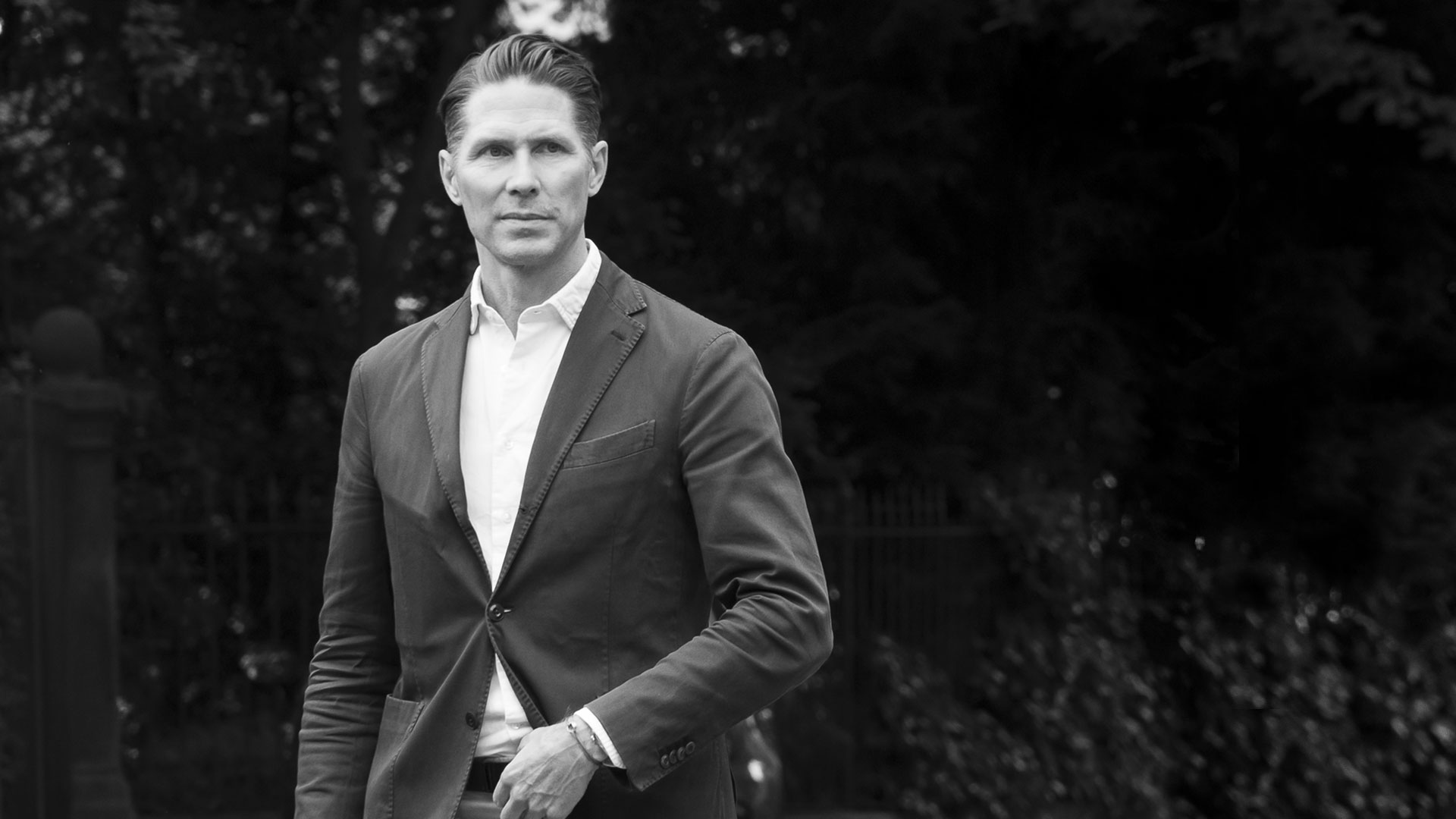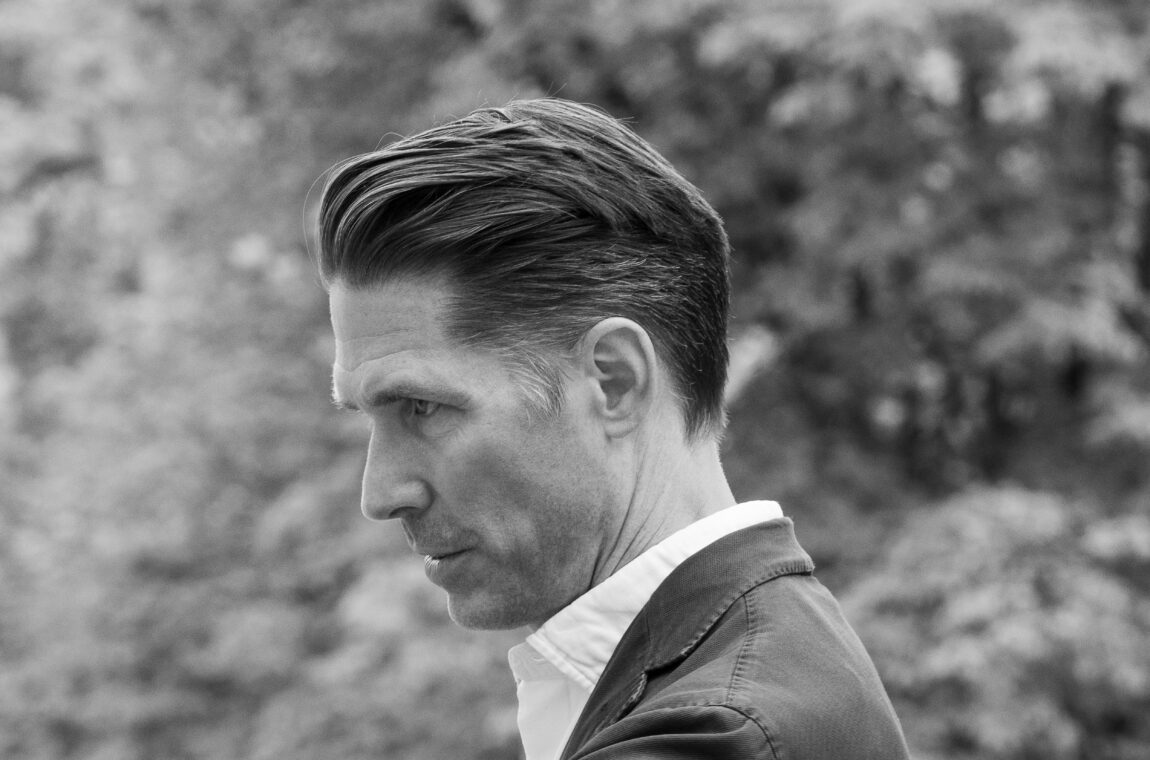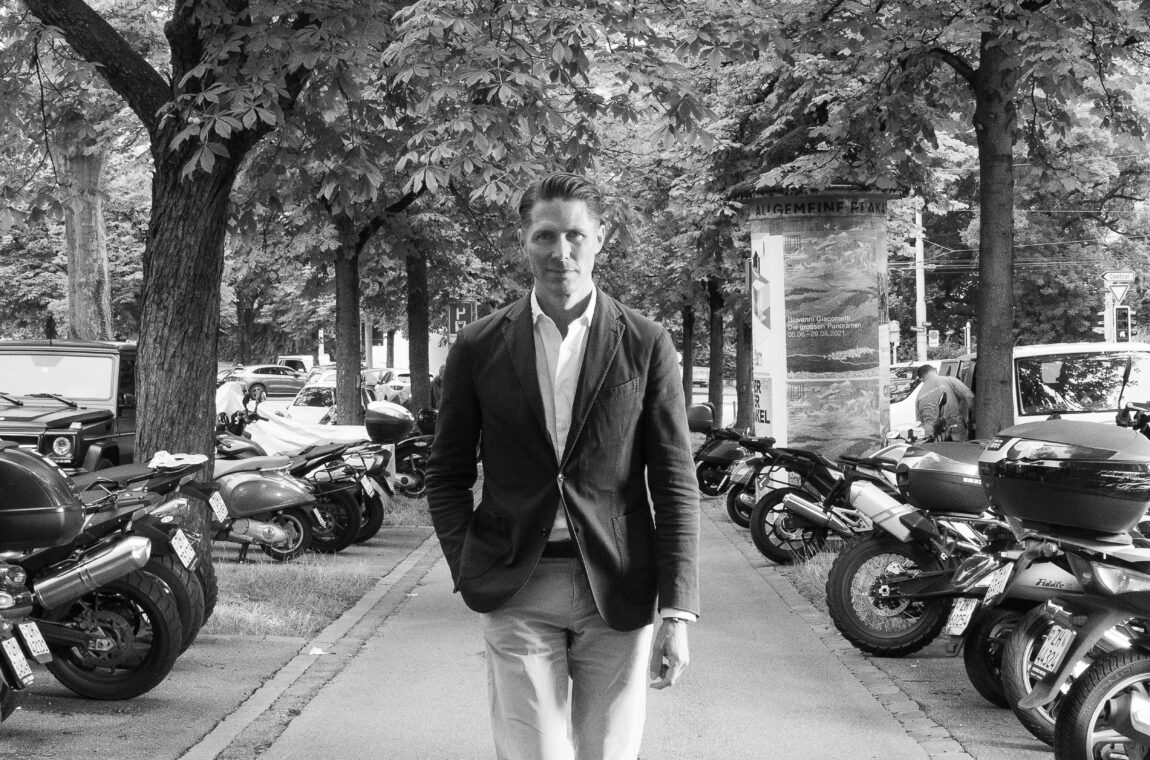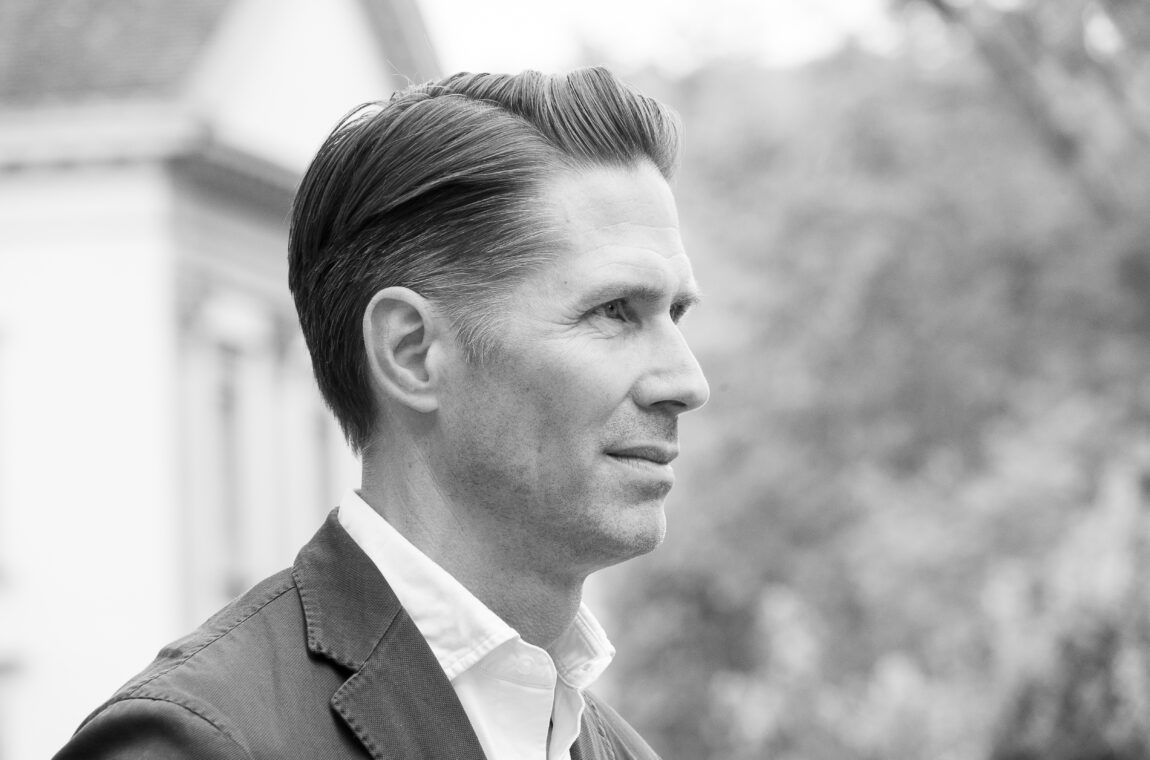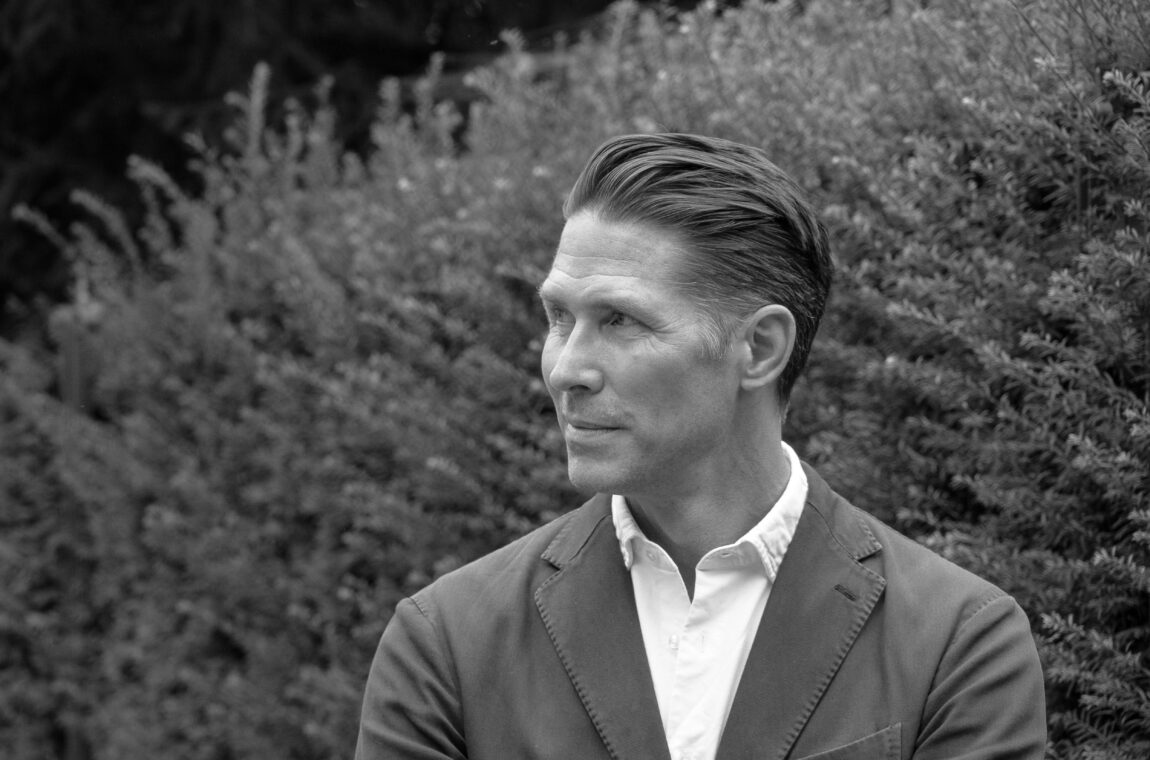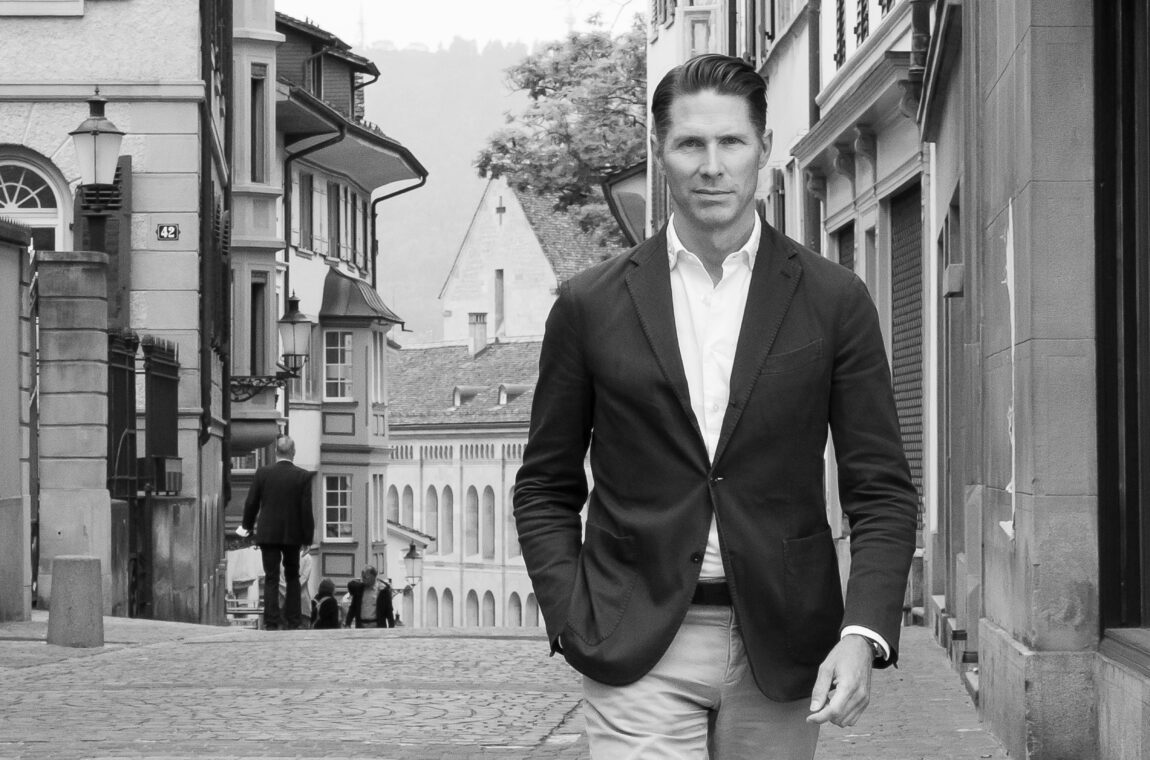Mats Klingberg
Mats Klingberg was born in a small town south of Stockholm, but during his childhood the family moved to Sao Paolo. He studied business in Sweden, Fashion in New York and Hotel Management in Switzerland.
He is a mentor at the London Business School and with The Prince’s Trust. In 2010 he founded Trunk Clothiers, which offers a curated edit of brands and his own brand designed entirely in house. In 2011 the brand Trunk was awarded “Brand of Tomorrow” by Walpole.
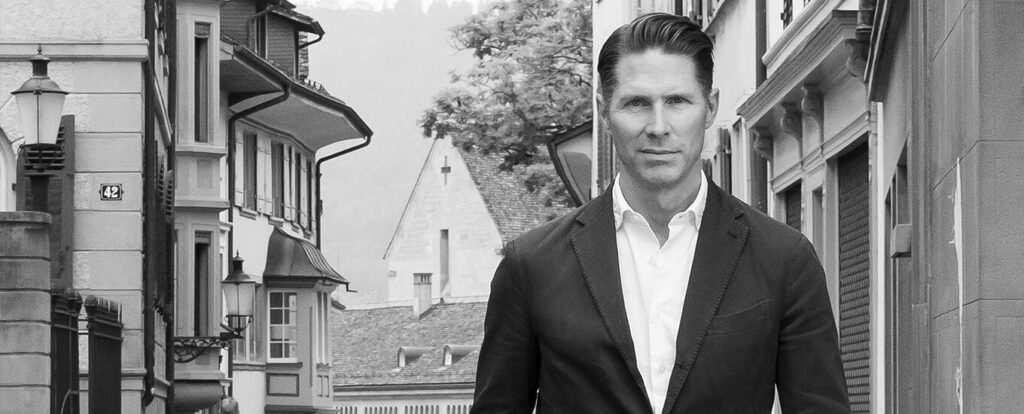
Why do you think are you so successful?
I think, in general, I’m an understanding person, I can see situations from other people’s perspective. And it takes a lot for me to get really angry, I mean, I just understand where people are coming from and see their side of things. That’s just my outlook on life. Of course, I try to constantly improve things and make things better. And of course, it’s not always great, but then I don’t get too upset about it, and move on. That’s what I try to do.
Of course, we all have setbacks, but I think you learn from them, and you move on. Of course you can get upset but it doesn’t help at all. You shouldn’t dwell on it for too long. Because then it’s just going to be a disappointment, whatever you do.
I think I’ve always followed my passions. Before I started Trunk, I was working at American Express, which might sound quite different, and in many ways it is. But I was in a global marketing role, where I looked after all the big global luxury brands. It was a marketing-led role, where I worked with all the brands that are part of LVMH, and Richemont, with Louis Vuitton, Dior, Gucci, Prada, Armani, Burberry, Ralph Lauren and I did campaigns with these brands. So, it was quite strategic, but with lots of execution. It’s always about the creative side, doing campaigns, branding, customer behavior. I think for a very long time, I had dreamt of doing something on my own. I mean, I have always dreamt of having my own hotel, which lots of people I think dream about, and that’s still a dream of mine. But launching my own shop felt easier to do and more within reach based on the experience I had from American Express, living in London and the connections I had. It felt like this is something I can do. So, it was during the financial crisis 2008/2009, I think when things sort of slowed down, I think when these things happen, that’s when you generally start reflecting or questioning. I think this is what’s happened the last year for many people as well. ‘What do I really want to do in life?’ ‘Do I see myself doing this corporate kind of climbing the ladder or whatever, and just running around?’ No, I really wanted to do something on my own. And I started to work on a business plan, still obviously working at Amex, at that time doing financial forecasts. And I thought, “Well, I mean, I can do this, on a fairly small modest scale.”And then in 2010, March, I quit. It was only in June when I got the keys to this shop. And the end of August, I opened. I just went for it, because I’d placed all the orders for the shop before I had a shop. I think this is my experience. If you sit around and just wait for things to happen or wait for everything to fall into place before you do something, nothing is ever going to happen. You just need to take that leap of faith. Had I known everything I know now, I wonder whether I would have taken this step? But now of course, I’m very happy. Anyone can launch his business. It’s just about having the courage. You always find a way and you shouldn’t be afraid to ask for help. People love to help as long as you just reach out and are open to accept it.
If you overthink, then you’re just going to get scared, and see all the risks, and get too obsessive about the risks, and think of all the reasons why not to do something, instead of thinking about the reasons why you should do things. You’ll always find a way to overcome the hurdles.
And also, the world around you changes all the time. You know, that’s a given. So, you just have to be flexible in your approach. Obviously, you have your core idea, you need to stay true to that. I always wanted to make it easier and more enjoyable for men to shop for clothes. I mean, so many of our customers don’t like shopping. When they come in, they think, “oh, I don’t like clothes, I don’t care about clothes.” But you can see in them that yes, actually this does make a difference. When they find clothes that fit them, it’s incredible what it can do for their self-esteem and well-being. I think what I do, I don’t define as fashion. It’s nice menswear clothes, because it’s not the latest trendiest thing from the catwalk that you can see on Instagram and blogs, because lots of these can be quite unwearable. I’m more about it needing to be wearable, it needs to be a more timeless design and good quality, made by people that actually can make a living or live off their work.
So with all of the brands we work with or factories that we work with for our own production, I’ve been there, I’ve seen them, lots of family-run businesses. We genuinely don’t work with brands where we don’t really know where or how things have been made.
But at the same time, I don’t want to be too lavish. I don’t know what the right word is, but at least, I’m in a business as well. I’m trying to run a good business. I’m not God or whatever, I’m just human as well. But I really want to do the right thing in all aspects of the business, and treat my suppliers in a good way, as well as the customers and the team.
Do you have a role model?
Tyler Brûlé is my partner. So, that’s why we are in Zurich. He created Monocle magazine. We’ve been together for 20 years, so I was there when he did the rebrand of Swissair to Swiss. He was doing Wallpaper at that time. That ended and then he did Swiss. He’s got a branding agency, lots of different projects.
I live with someone that is very creative, someone that doesn’t take ‘no’ for an answer and just goes for it. I think lots of other people see all the things that can go wrong. He really sees things that maybe he can acknowledge and know could go wrong, but if you get stuck on those, nothing’s going to happen. So, it’s really about seeing the opportunities and going for it.
So I was very much inspired by that, rather than by any famous person. People ask me, “Which fashion brand or whatever do you look up to for style advice?” I don’t function like that. Obviously, Tyler was very close to me, and in terms of seeing his approach, I thought if he can do all that, I should be able to do something as well.
What is the impact of nature, art or beauty on your life?
Anything beautiful has an impact.
So, this here is a beautiful courtyard with the trees, I mean, the light coming in now, you hear the birds, and then the fresh air. It’s amazing. Here in Zurich now, in a way again, thanks to the pandemic, they’ve allowed seating outside to go further, because I believe normally the city would only allow seating here, not over there. And this is what happened outside of our coffee shop as well. I just hope that the city of Zurich will keep this. Before it was like, people couldn’t be moving and walking down the street. But I think this has really brought the city to life. I think this has actually been happening around the world and I hope that people, or the cities, will realize that this is a good thing. It’s a beautiful thing. It’s about people being there and enjoying it. And I think it’s nice too that other people make you happy as well. As humans, you want to be amongst other people.
I see beauty in lots of things and get lots of my inspiration from it, rather than looking at some old film. I mean, I look at people around me coming into the shop or sitting over there and think “that is a cool green jacket he’s wearing. Maybe, I can get something like that or whatever.” So, I pick up on things all the time.Then also being connected and close to nature I think is very important.
Like I said, I come from a small town outside Stockholm, and we lived with the forest right behind us. I’m not a farmer, but I’ve always been close to nature. And I could always just go out and run around in the forest behind us. Also, in autumn we always went mushroom picking, it was always something I enjoyed, we went fishing, crayfish fishing. So, nature has always been a big part of my life. You go up in the mountains to go skiing. That’s what I enjoy. These are some things that most of us can enjoy without spending a lot. You don’t necessarily need a lot of money to be able to enjoy nature. That’s very important. Of course, this depends on where you’ve grown up. If you’ve grown up in Dubai or somewhere like that, then you might be scared of the forest. So, I don’t know. Obviously, it’s different if you’ve grown up in Switzerland or in Sweden. Nature’s always close by. Maybe you have a different relationship with it. I don’t know. But obviously, in Japan, they talk about green bathing, I think. It is healing to go out and walk amongst greenery. They very much believe in that in Japan.
What is your Utopia?
My own? Like I said before, my life’s dream is to have a hotel, somewhere. It’s really appealing to bring people together, nice people that enjoy each other’s company, and where they can experience nice nature, good food, be able to relax, turn off their phones, and just enjoy the pure basics in life that make life worth living.
And I think that’s the place I want to grow, to be surrounded by nice people. Obviously, friends can come, but then also other people can come and visit. So, in a way, what we already see, where we are now with a cafe and the shop, we just become more creative, create a bit of a community. It’s so nice to be actually the enabler of people coming together thanks to what Trunk and Monocle have created with the shop and café in Seefeld, making new friends, business connections, and coming just to have a nice relaxing time. It’s really increased my personal quality of life incredibly as well. We’ve met so many people, because people come on a regular basis, I’m out there around and about, you start talking, we have little drinks here and there sometimes. And then, if you’ve spoken to people, maybe 10 times, then eventually you get invited somewhere for dinner, and it sort of just builds from there. I think this has also been the case during this past year, thanks to the pandemic because normally, perhaps you go to a bar, or to a restaurant, but now you can’t, so you go to people’s homes, and you connect with people in a very different way if you’re in their home. The wine keeps flowing, which it doesn’t in the same way in a restaurant. And you become more personal as well. I think we’ve made so many nice friends this last year. You can’t compare the previous ten, 20 years before. And I think it’s very much thanks to us being here in Zurich and have created this sort of community that we’ve got to know many people in that way. We’re obviously outsiders in a way even though we’ve been spending a lot of time here. So, that’s what I want to do more of. I mean, it could potentially be in a city setting but I envision being up on a hill somewhere, overlooking a nice lake or something. So, nice space, nice fresh air, you can go hiking, walking, eating, read a book, whatever. It’s about creating a nice space where people come, and relax, and connect, and recharge, have a nice time. That’s my utopia. My personal one.
What do you say to people looking for advice?
Just go for it!!
